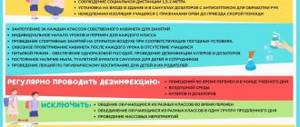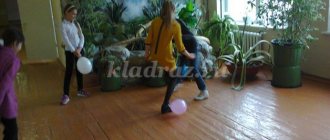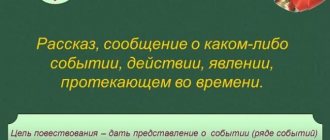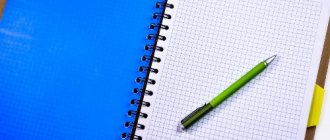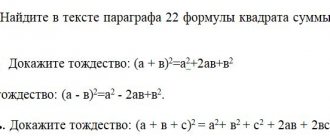Self-education plan for physics and mathematics teachers
MBOU "BYURGANOVSKAYA SOSH OF BUINSKY MR RT"
Individual self-education plan
teacher of physics and mathematics Malysheva Natalia Vasilievna
“Among the main tasks currently facing every teacher, there is no other more important and more complex than the task of developing positive, sustainable motivation in students, which would encourage persistent, systematic educational work.” /FSES/
Methodological topic:
“Application of systems-active approach technologies
in physics and mathematics lessons"
Self-education goals:
—
providing various individual trajectories for obtaining a full-fledged education, taking into account the abilities, capabilities, and interests of students;
- achieving a higher level of my professional competence.
Tasks:
—
continue to work on improving the scientific and theoretical level in the field of theory and methods of teaching mathematics;
-develop the creative and individual abilities of students;
-increase the motivation and quality of knowledge of students.
Main stages of self-education:
-studying the theoretical foundations of the system-active approach;
-acquaintance with psychological, pedagogical and methodological literature;
-study of new educational standards;
-study of new technologies, methodological techniques;
-comprehension of theoretical research and its practical development;
-creation of didactic materials;
-preparation of a set of plans and notes for a systematic and active campaign;
- practical application of new technologies, techniques, methods of work in mathematics lessons.
Forms of self-education:
Individual - through an individual plan, group - through participation in activities
school and district methodological associations of mathematics teachers.
SELF-EDUCATION PLAN.
1.INCREASED PROFESSIONAL LEVEL.
-Study of new educational standards;
-study of new pedagogical technologies and their application in practice;
-studying methodological literature on physics and mathematics;
- completion of advanced training courses;
-participation in video conferences;
-participation in seminars of the methodological association of physics and mathematics teachers in the region;
-visiting master classes of school and district teachers;
-attending open lessons with school and district teachers;
-studying teaching materials in mathematics and physics from various authors and publications;
-studying technologies for preparing students for the Unified State Exam and State Examination;
-studying methods for solving problems of increased complexity;
-annual study of demo versions of KIM-s of the Unified State Exam and State Examination in mathematics;
-organization of children’s participation in Olympiads;
-organization of extracurricular activities in mathematics and physics.
2.INCREASING THE METHODOLOGICAL LEVEL.
-Development of a set of tasks for preparation for the Unified State Exam and State Examination;
-development of a set of tasks for conducting intermediate certification;
-development of different level didactic materials;
-development of a work program in physics
-development of a work program in mathematics grade 5 (FSES);
-creating a database of lesson scenarios, extracurricular activities on the subject, interesting finds and techniques;
-development of lesson notes and technological maps;
-conducting open lessons and events;
— exchange of experience with colleagues.
3. PSYCHOLOGICAL AND PEDAGOGICAL SELF-EDUCATION.
-Improving your knowledge in the field of classical and modern pedagogy and adolescent psychology;
-studying the theoretical foundations of the system-active approach;
- review on the Internet of information on pedagogy, psychology, innovative technologies;
-increasing the effectiveness of the psychological component of the lesson, the absence of conflicts with students.
4. USE OF INFORMATION AND COMPUTER TECHNOLOGIES.
-introduction of ICT into the educational process;
-creation of a personal website;
-taking courses on the topic: “Creating presentations in PowerPoint.”
5. LEGAL SELF-EDUCATION.
-Study of Federal Law No. 273 “On Education in the Russian Federation”;
-study of regulatory documents in the field of education;
-increasing legal competence.
Expected result:
- Improving the quality of students' mathematical preparation.
- Increasing motivation in mathematics lessons
- Building trust and tolerance in learning interactions.
- Taking into account the personal characteristics of students.
- Development of work programs on the subject and lesson notes.
- Conducting open lessons and extracurricular activities.
- Development and testing of didactic materials.
- Increasing professional and legal competencies.
- Self-analysis of professional activity.
- Professional growth.
The purpose of professional self-education:
Study and apply in practice effective technologies for implementing the system-activity approach
Objectives of professional self-education:
Study the theoretical foundations of the system-activity approach
Expand your knowledge about modern effective technologies
Contribute to the formation of meta-subject results using a system-activity approach
Develop a set of didactic and methodological materials on the use of effective technologies
Principles of professional self-education
: continuity, purposefulness, integrativeness, unity of general and professional culture, interconnection and continuity, accessibility, proactive nature, consistency.
Sources of self-education:
Mass media, magazine “Physics at School”, Internet, seminars, conferences, lectures, experience exchange events, master classes, advanced training courses, municipal scientific and practical conferences.
Forms of self-education: individual, group
(participation in the activities of school and district methodological associations of mathematics teachers, network interaction with teachers via the Internet).
Expected result of self-education
: implementation of a system-activity approach in mathematics lessons, increasing the efficiency of students achieving meta-subject results.
Planned results of self-education:
Speech at a school seminar on the topic “Effective technologies for implementing a system-activity approach in teaching physics lessons”
Speech at the pedagogical council “System for assessing achievements of meta-subject results”
Production of didactic material for physics lessons on level differentiation
Preparation of a package of Olympiad material in physics for 7th grade students
Creation of a bank of creative and design-research works of students;
Preparation of a set of outline plans for open lessons using a system-activity approach.
Self-education plan
developed for 2015-2018. and includes the following steps.
I. _ Theoretical stage: January 2020 – July 2015.
target selection;
formulating a personal individual topic;
understanding the sequence of your actions;
acquaintance with psychological, pedagogical and methodological literature.
II . Practical solution to the problem: August 2015– July 2017.
O
understanding of theoretical research and its practical development;
accumulation and application of new technologies, methodological techniques;
creation of didactic materials;
preparation of a set of outline plans for the system-activity approach;
practical application of new technologies, techniques, methods of work in physics lessons;
holding open lessons, attending lessons of colleagues.
III . Evaluation stage: August 2020 – May 2020
summing up the work;
registration of results;
broadcast of work experience.
Schedule of professional self-education activities for physics teachers
